Impact report: Defying relapsed neuroblastoma
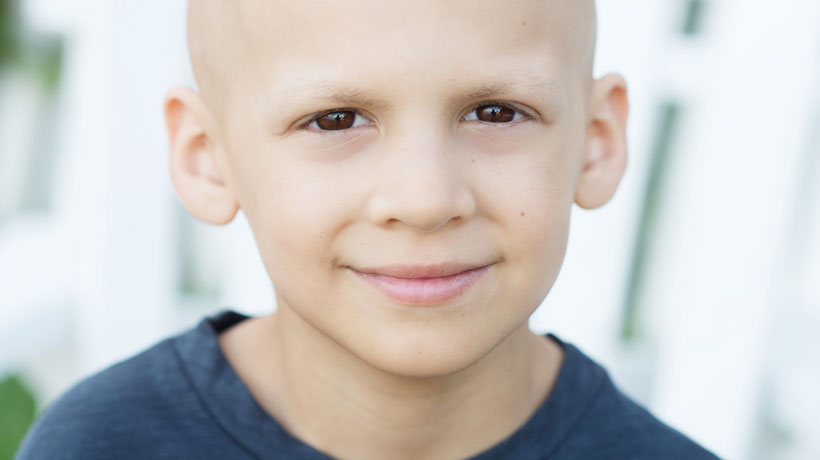
The Kids’ Cancer Project has provided over ten years of invaluable support to Children’s Cancer Institute to develop improved treatments for children with hard-to-treat relapsed neuroblastoma.
Neuroblastoma is the most common tumour diagnosed in young children and is extremely aggressive with survival rates of less than 50 percent for children with high-risk disease.
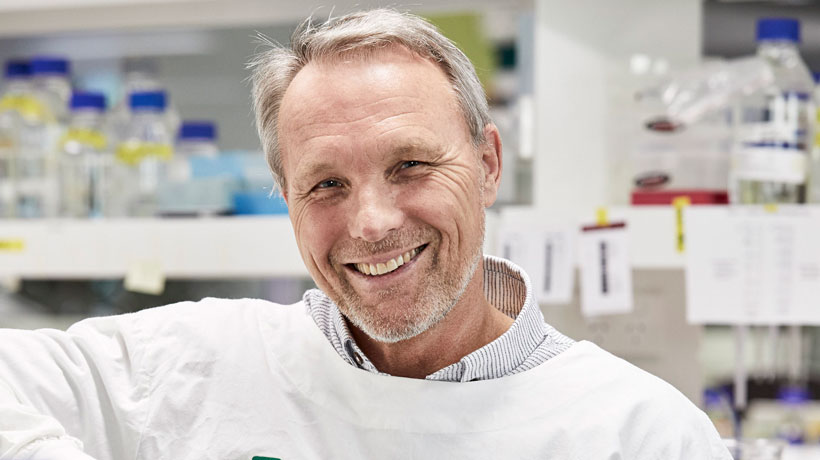
“We are extremely grateful for the funding provided by The Kids’ Cancer Project. Such enduring support has helped enable us to do research that has led to a new therapeutic approach for children with aggressive cancers, particularly high-risk neuroblastoma, for whom survival rates are less than 50%.” – Professor Murray Norris
Neuroblastoma cells need large amounts of molecules called polyamines to fuel their rapid growth. A drug called Difluoromethylornithine (DFMO) was discovered in the 1970s that can stop neuroblastoma cells from manufacturing polyamines. Unfortunately, DFMO had failed to live up to its initial promise as a cancer drug.
This changed however when Professor Michelle Haber’s and Professor Murray Norris’s team at Children’s Cancer Institute discovered that DFMO was much more effective at killing neuroblastoma cells in the lab when combined with chemotherapy drugs. This was very exciting as there are not many treatment options available for children with relapsed neuroblastoma.
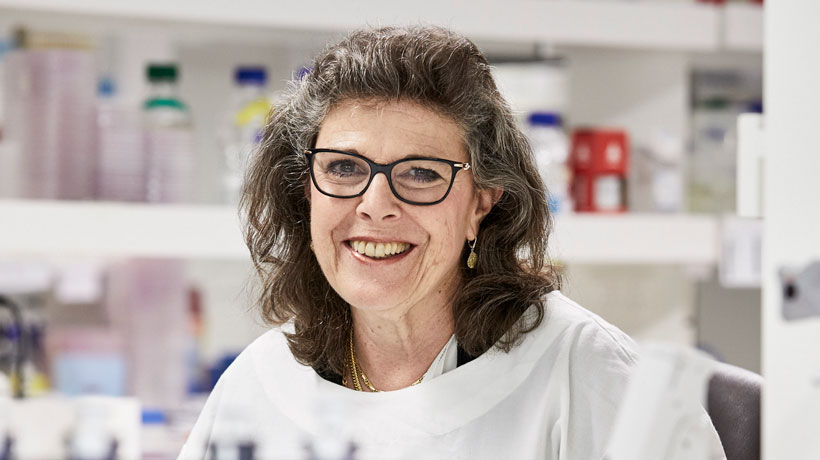
“The support from The Kids’ Cancer Project has been remarkable in terms of its longevity and its support of both laboratory research and clinical trials. This funding has helped support the transition of a research hypothesis into a number of completed, active and pending international clinical trials, as well as allowing us to undertake the laboratory research needed for ongoing development and enhancement of this exciting new treatment approach. We are exceptionally grateful to The Kids’ Cancer Project for their longstanding and exceptional support.” – Professor Michelle Haber
The support from The Kids’ Cancer Project allowed Children’s Cancer Institute to establish an international clinical trial led by Associate Professor David Ziegler, which added DFMO plus celecoxib to a standard treatment backbone (cyclophosphamide/topotecan) for relapsed and highly refractory neuroblastoma patients.
The treatment was well tolerated with minimal toxicity, even at the highest DFMO dose, and achieved the levels needed to have a biological effect. Despite being a Phase I study, a number of patients who completed the study had a response with their tumours shrinking, leading to extended survival.
These results have now directly led to a major international trial being undertaken by the Children’s Oncology Group in over 200 hospitals worldwide.
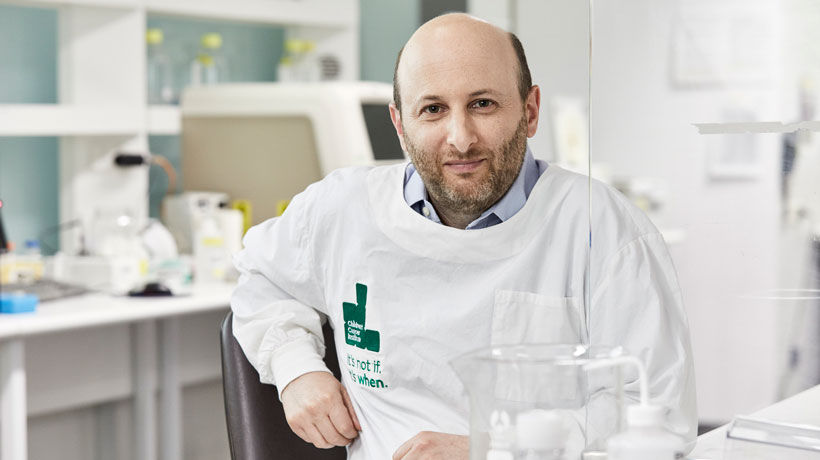
“We worked for several years on development of a clinical trial testing DFMO in children with neuroblastoma and hit a major roadblock when we realised we had to make a completely new formulation of the drug suitable for administration to children. The Kids’ Cancer Project stepped in and provided the funds that allowed us to produce all the drug required for the entire trial. Not only did this mean we could run the trial, but this treatment strategy has now been rolled out internationally through the Children’s Oncology Group.” – Associate Professor David Ziegler
The clinical trial provided clear evidence supporting polyamine depletion strategies in treating children with relapsed neuroblastoma, and Children’s Cancer Institute have continued to work to further enhance these polyamine inhibition strategies. DFMO prevents neuroblastoma cells from creating their own polyamines, but it cannot stop them from taking polyamines up from their surroundings.

Declan’s story
In April 2013, Declan was diagnosed with stage 4 advanced widespread neuroblastoma just before he turned four. Declan had a scan which confirmed that he had a tumour in his abdomen the size of his dad’s fist. It was stage 4, in his bones and bone marrow as well. He started treatment straight away.
Declan’s treatment began at what was known then as Princess Margaret Hospital Perth with five gruelling cycles of chemotherapy treatment, followed by a nine-hour operation to remove his tumour.
In August 2013, Declan was declared in remission. It was a big day for the family. After several months of gruelling treatment, including radiation and immunotherapy he was allowed to go home two months early, because he had been handling it so well. Sadly, it was not to last. By January 2015, Declan had relapsed – scans showed two new tumours, one on his ninth vertebra and another on his hip.
Declan was enrolled on the DFMO trial in April 2015 (led by Associate Professor David Ziegler) and the early results were very positive. After four months, the tumour on his spine had gone and the one on his hip had almost completely disappeared. Declan’s scan in December 2015 showed no further progression.
Sadly, June 2016 scans showed that the tumour on his hip had grown and in May 2017 Declan passed away after an incredible brave battle against childhood cancer. Everyone who met Declan was touched by his determination, stoic nature, sense of humour and absolute wisdom.
The recent (2019 – 2023) funding from The Kids’ Cancer Project will allow Children’s Cancer Institute to further characterise the genes involved in polyamine uptake and to develop predictive biomarkers of response to polyamine inhibition.
Furthermore, the funding will allow Children’s Cancer Institute to leverage research indicating that the addition of a polyamine uptake inhibitor called AMXT 1501 (developed by Aminex Therapeutics) to the DFMO/chemotherapy combination provides a powerful new therapeutic strategy for treating children with cancer.
Importantly, depleting polyamines with a combination of DFMO and AMXT 1501 not only reduces cancer cell growth, but also harnesses the body’s immune response against cancer. This project will define the optimal polyamine depletion/chemotherapy/immunotherapy combinations that can be rapidly translated into clinical trials, to directly benefit children with hard-to-treat relapsed neuroblastomas.
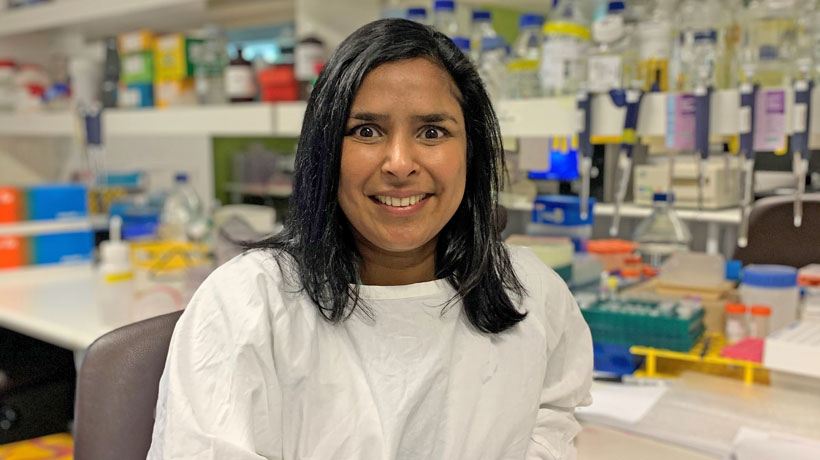
“The support from The Kids’ Cancer Project has allowed us to expand our research to help children with cancers that have limited or no effective therapies available to them. The most recent funding from The Kids’ Cancer Project will allow us to optimise polyamine treatment strategies that will inform the design of future biomarker-driven clinical trials for high-risk childhood cancers. We cannot thank The Kids’ Cancer Project enough for funding our research to make a real difference to children battling these devastating diseases. ” – Dr Ruby Pandher, Postdoctoral Scientist working on the project in the lab
Finally, Children’s Cancer Institute have obtained preliminary data on a childhood brain cancer called diffuse intrinsic pontine glioma (DIPG), a devastating disease that is currently 100% fatal, that provides compelling evidence for the use of a polyamine depletion strategy to treat children with DIPG, and potentially other aggressive brain tumours.

